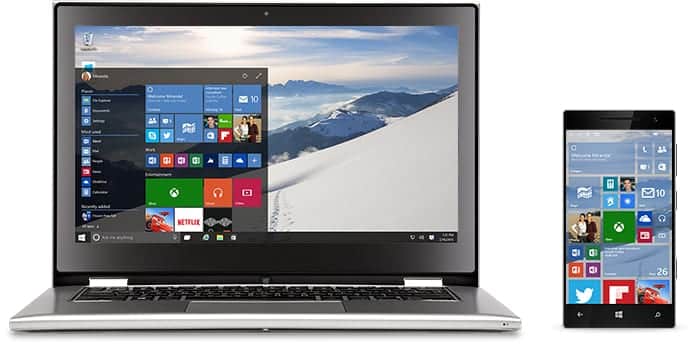Microsoft hopes to launch the Windows 10 operating system in 190 countries, and 111 languages this summer. Microsoft also made the bold move to allow Windows 7 and Windows 8.1 users to upgrade to Windows 10 for free. Microsoft has charged for every version of Windows since the operating system’s inception, and they weren’t cheap. Their competitors charged chump change compared to them, while some charged none (for example: Many *nix distributions). Even Apple’s OS X operating systems were well under $200, and under $100 recently. There has been a trend towards lower-priced operating systems recently.

Image obtained with thanks from Microsoft.
Following this trend, Microsoft lowered Windows prices to less than $100. What could be motivating this trend? Why is nearly every major company so bent on simply getting people to use their operating systems, despite the fact that they are not advertisement funded, and sometimes free? My guess is: Getting users into their ecosystem (a more fitting alternative to the term ‘operating system’) is lucrative because it gives them more control over the PC market. Today, operating system vendors have app stores which either charge a fee to distribute software vendors’ apps, or they collect a fraction of their earnings.
This means that owning the world’s most widely used operating system (like Android) could result in significant earnings. Imagine getting a cut of hundreds of thousands of apps’ revenue? If you thought that was lucrative, there are even more benefits. For example: Microsoft has been selling various forms of software which run on Windows only (like Office). This means that getting users onto Windows (or keeping them by offering it cheaply, or for free) could them help keep their Office customers.
Microsoft Visual Studio and its programming languages (Visual Basic, C#, among others) are designed specifically for the development of Windows applications, therefore too many losing Windows users makes Visual Studio less appealing because the demand for Windows applications would decrease, and developers would abandon it. Hopefully the Windows 10 launch will be a fresh start for Microsoft.












